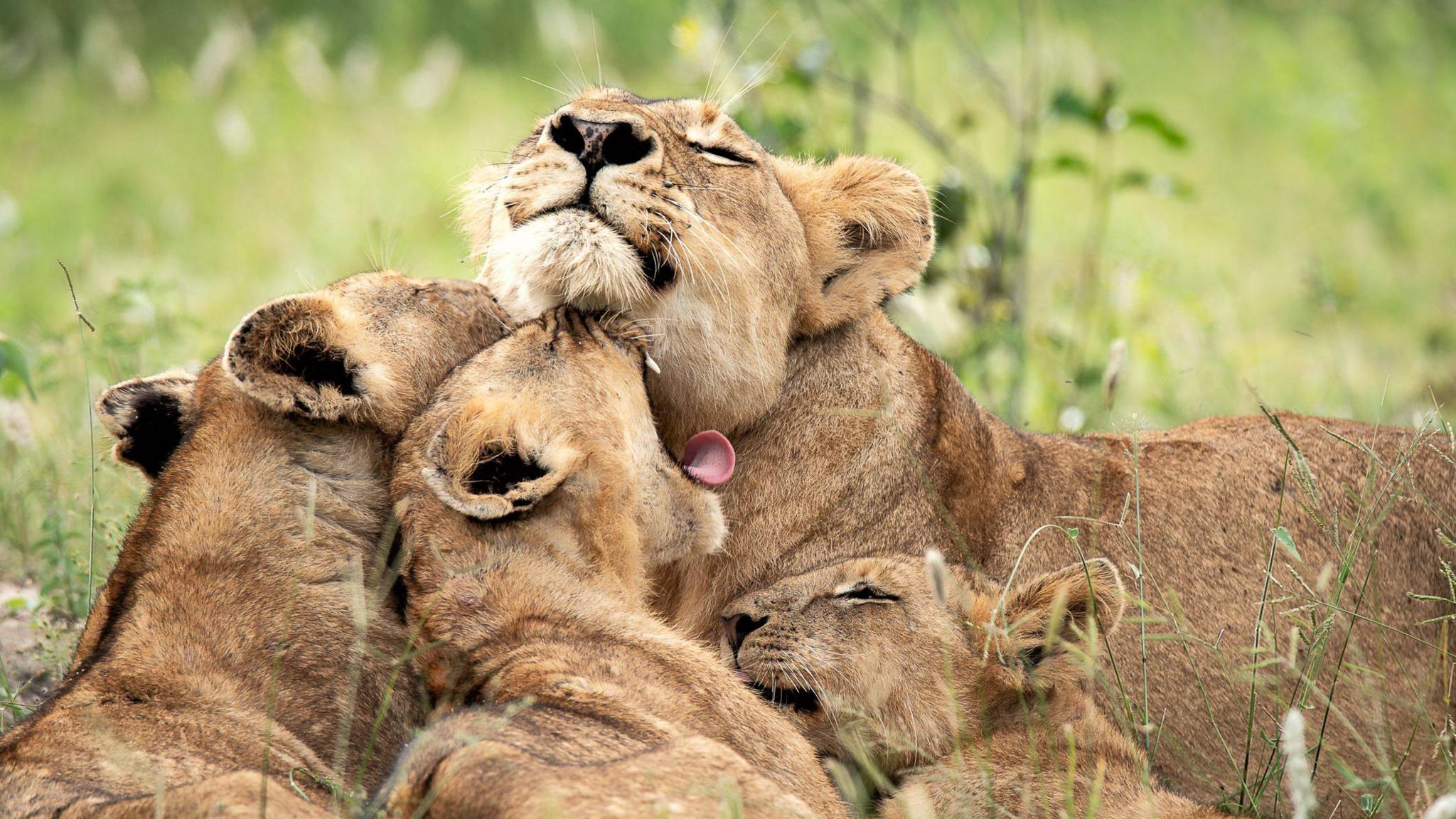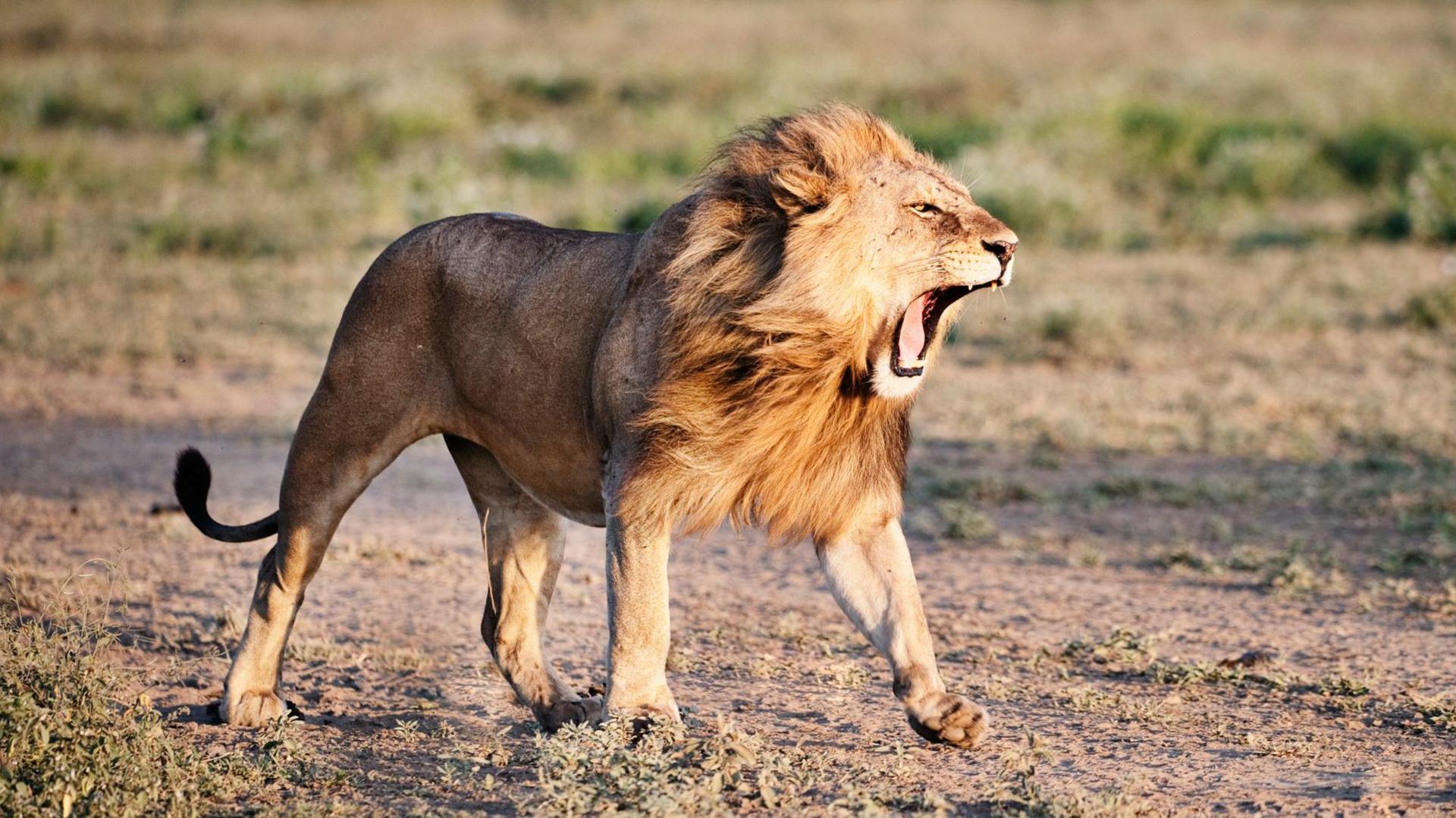How many roars? Scientists think they've found a new type of lion roar

What type of roar do you think this lion is making?
- Published
Whether on a David Attenborough documentary or Disney film, you'll be familiar with the majestic sound of a lion's roar.
But did you know scientists now think there are actually two different lion roars?
In a new study looking at the types of sound lions make, researchers discovered another roar that's different to the famous full-throated roar.
They've called it an "intermediary roar", and the team behind the finding think that it could help scientists to work out the size of lion populations.
More roar-some stories:
Is it a lion or is it a dog: Mystery solved
- Published10 November
Hakuna Matata! Stars of Mufasa: The Lion King speak to Newsround
- Published20 December 2024
World Lion Day: Top five facts about the King of the Jungle
- Published10 August

Lions use roars to help them communicate with other members of their pride
Using artificial intelligence, researchers analysed the sound of different lions to try and work out the specific sounds present within a lion's roar.
They were able to separate the sounds into four different lion call types: moan, full-throated roar, intermediary roar (the new discovery), and grunt.
Intermediary roars are shorter than full-throated roars, and also have a different highest frequency.
Frequency is the measure of the number of sound waves produced each second by a noise.
The higher the frequency, the higher the pitch of a sound.
They were able to separate the different types of lion roars with an accuracy of over 80%.

If scientists can understand more about individual lion roars, they can use audio technology to listen and learn more about the creatures
Why do lions roar?
The research was published in the Ecology and Evolution journal, and the scientists write that a roar is just one of many sounds lions make, including "mews, snarls, chuffs, grunts [and] moans".
Roars are used so that lions can keep in contact with members of their pride (a group of lions that they live with) that are far away.
Lions also roar to show that they're in control of an area of land.
It's also thought that lions can understand the age of another lion from its call, as well as if it's male or female.
